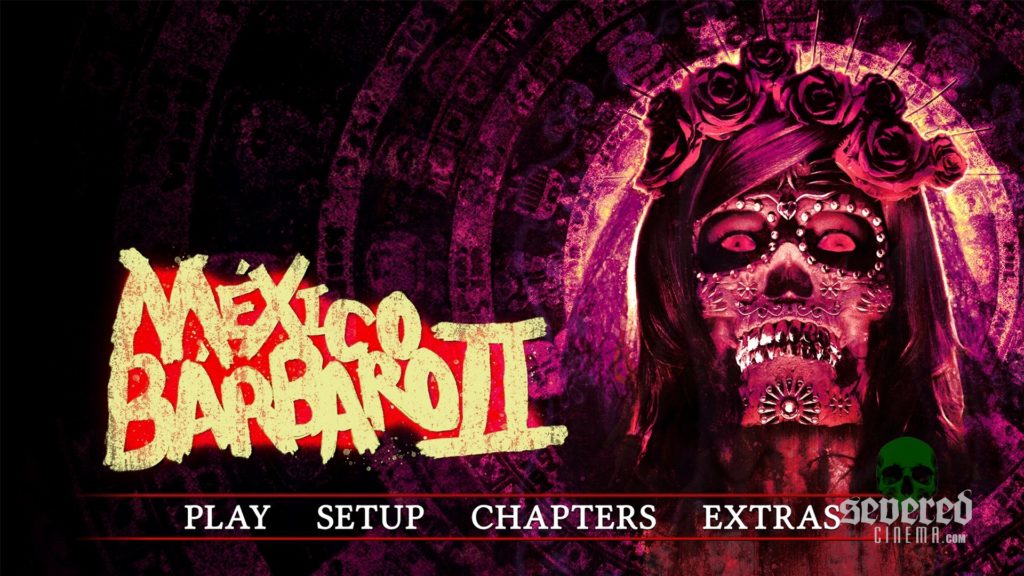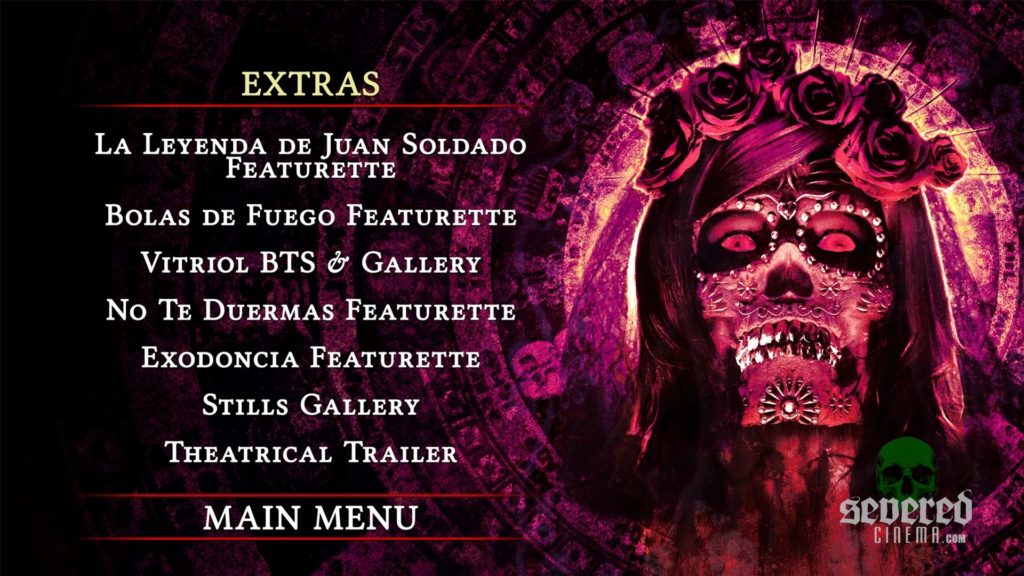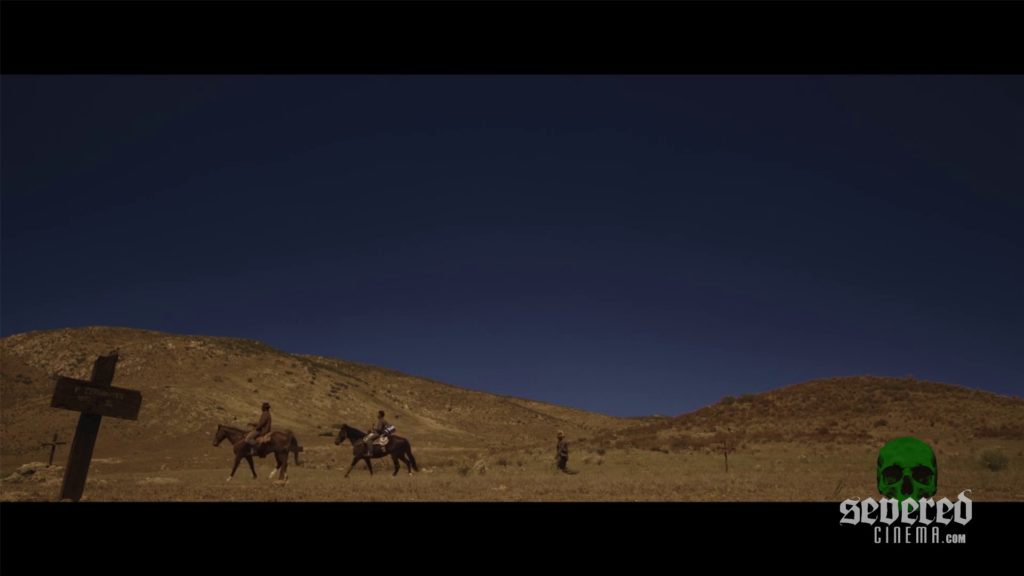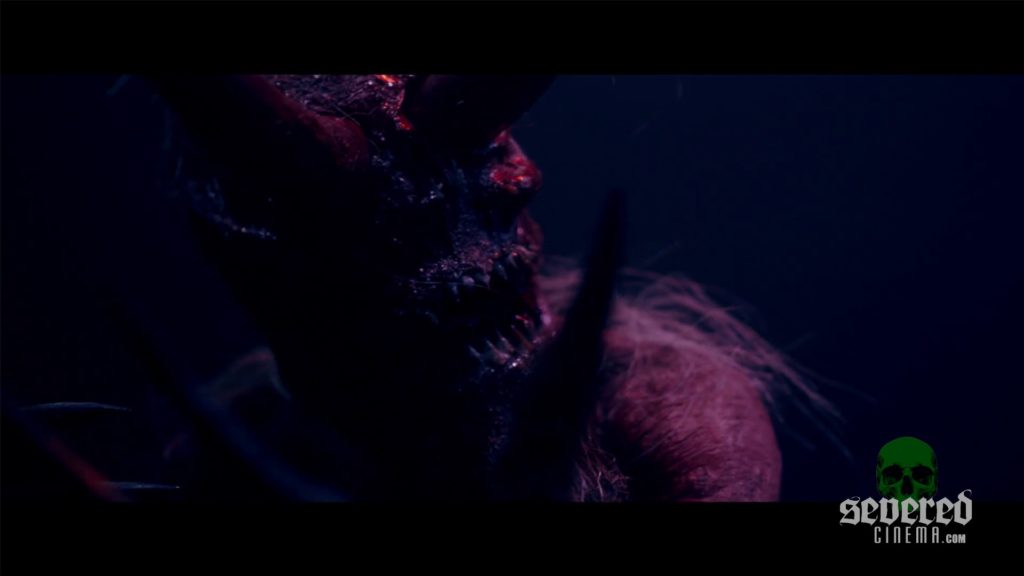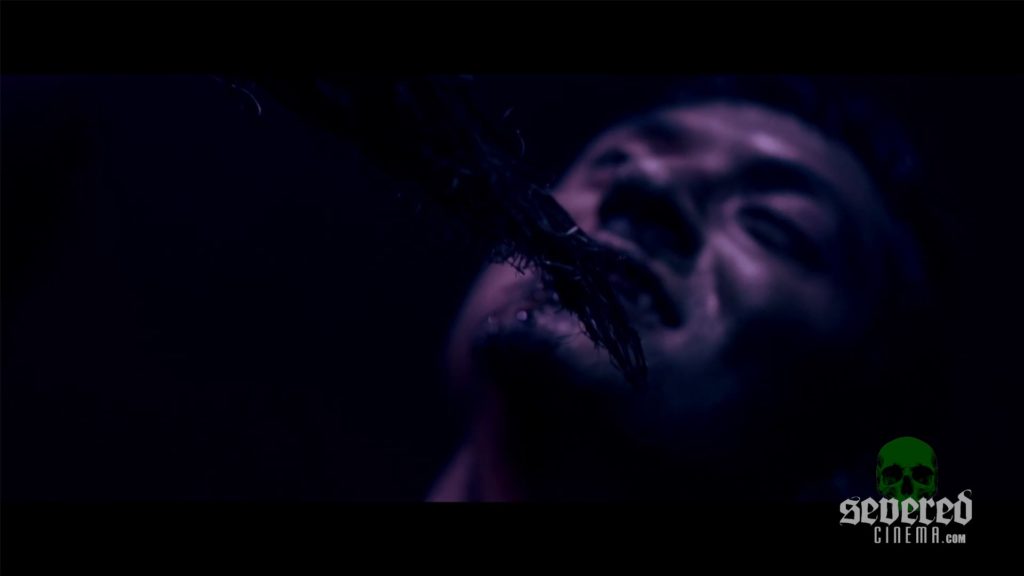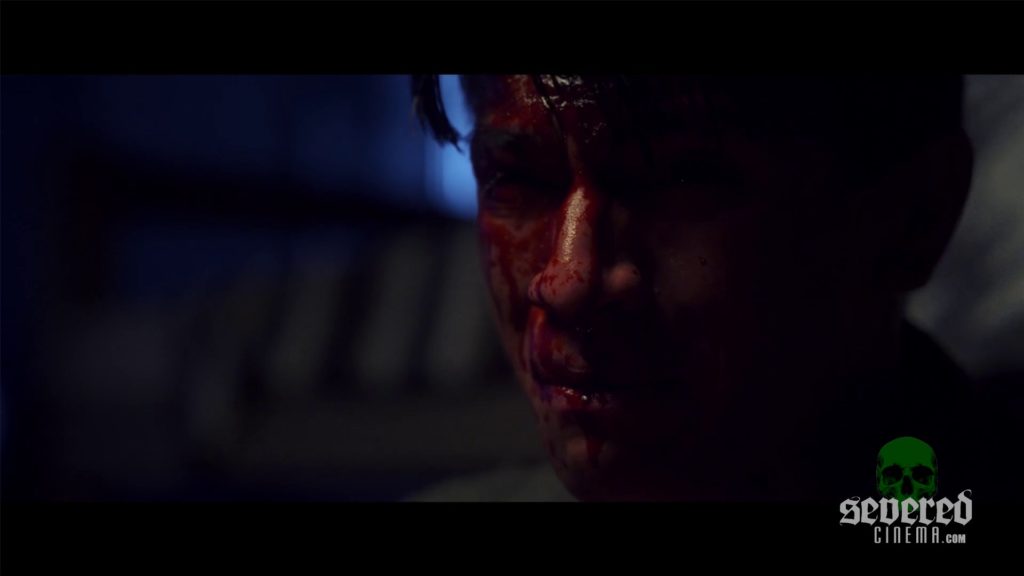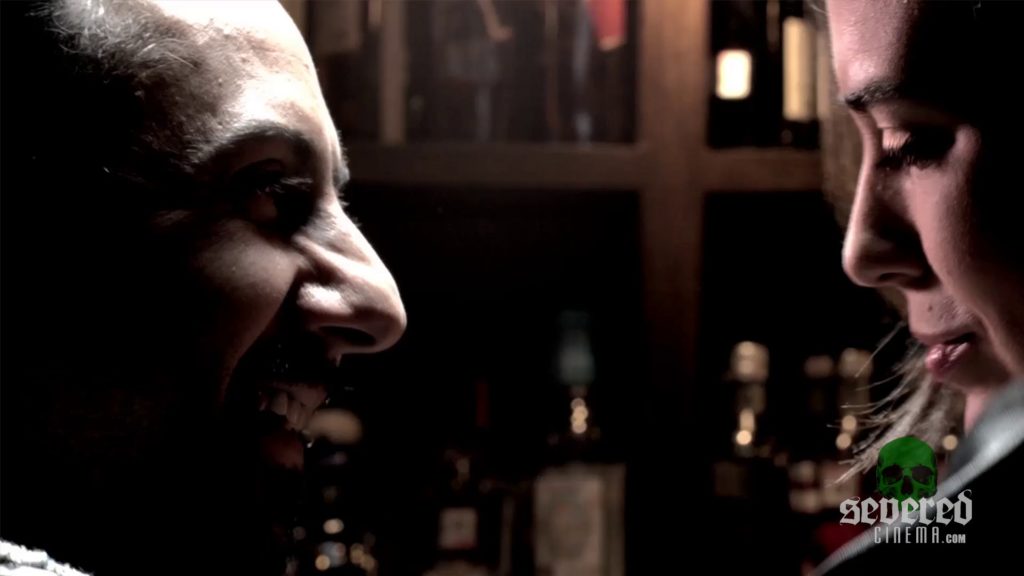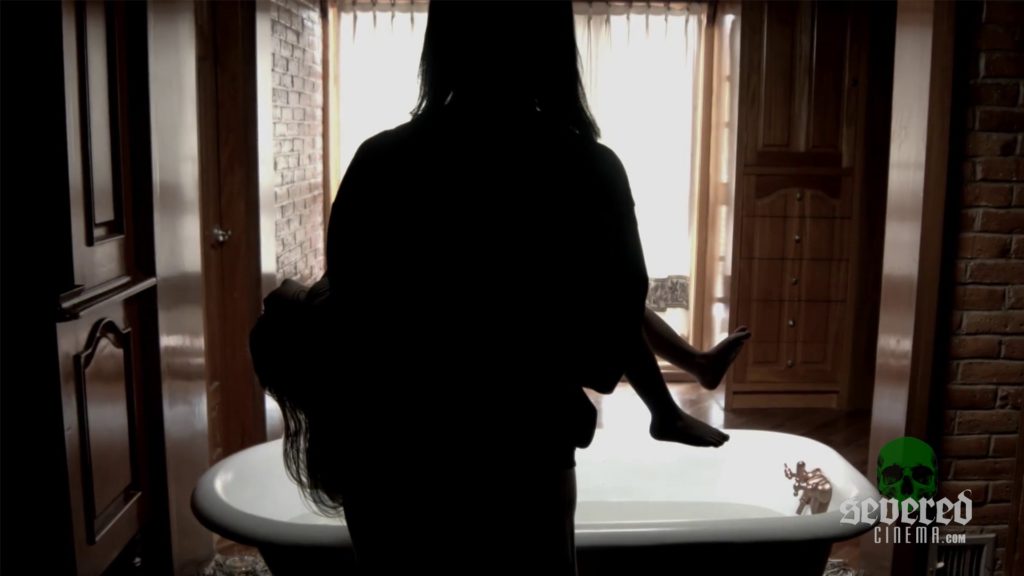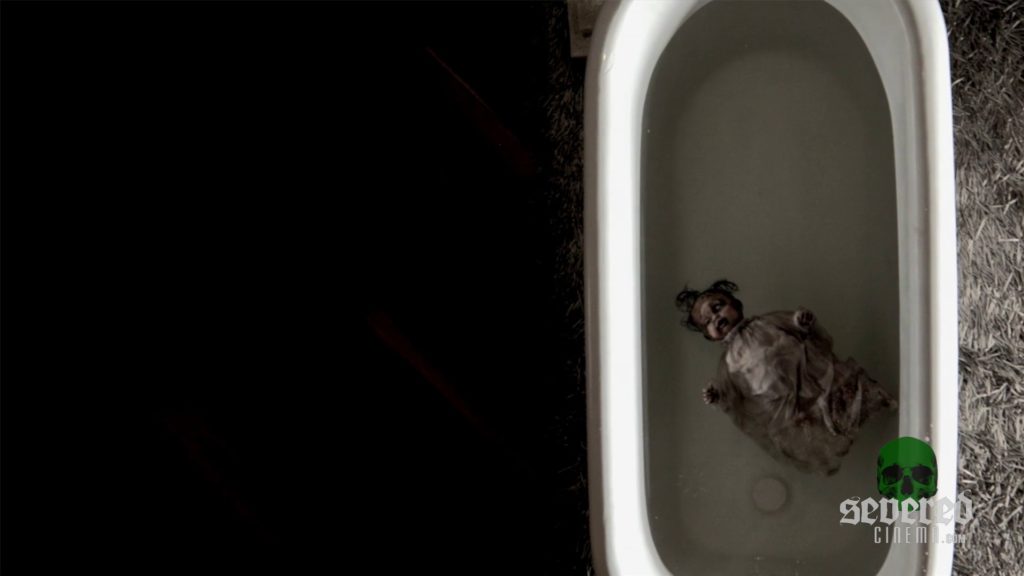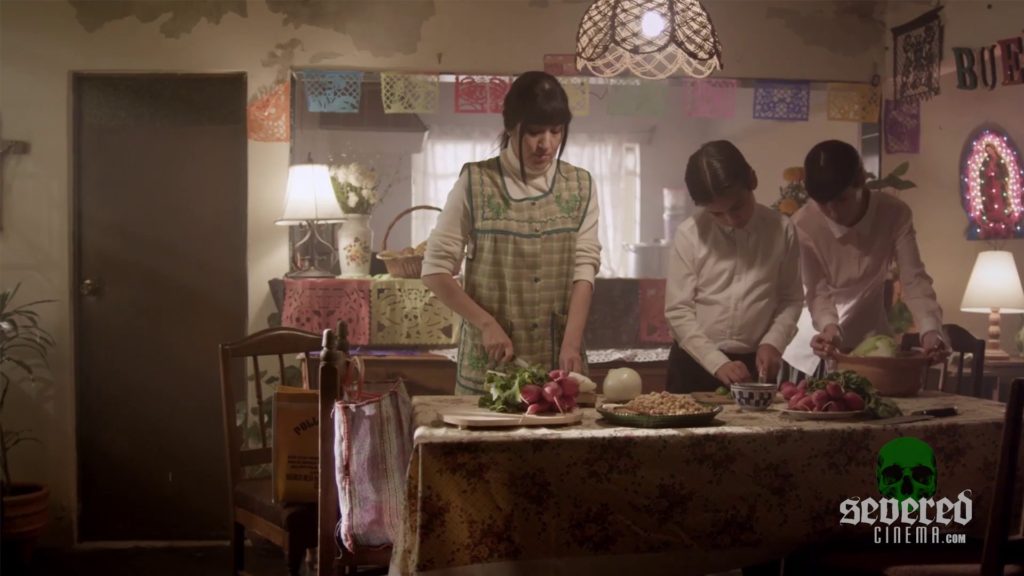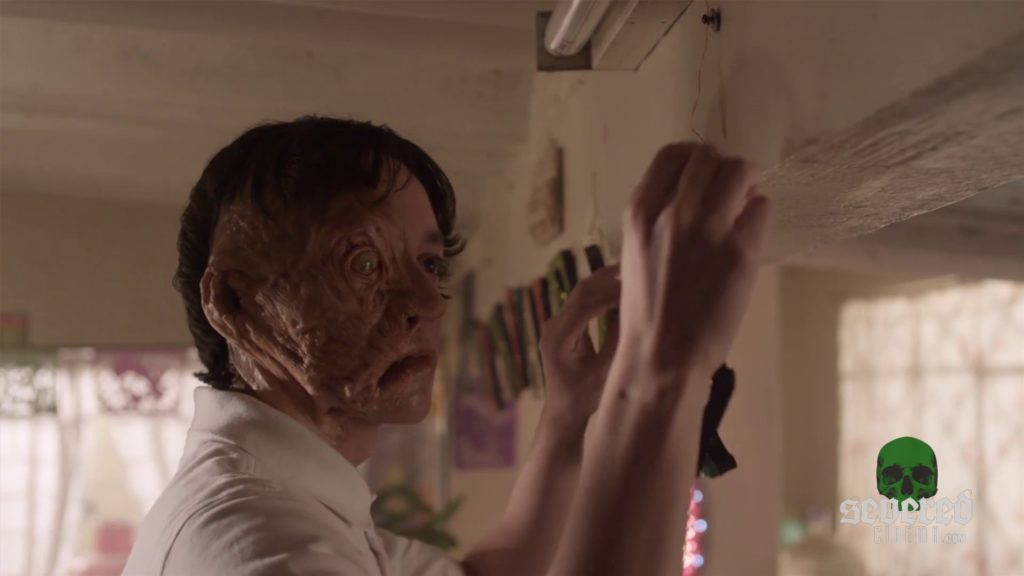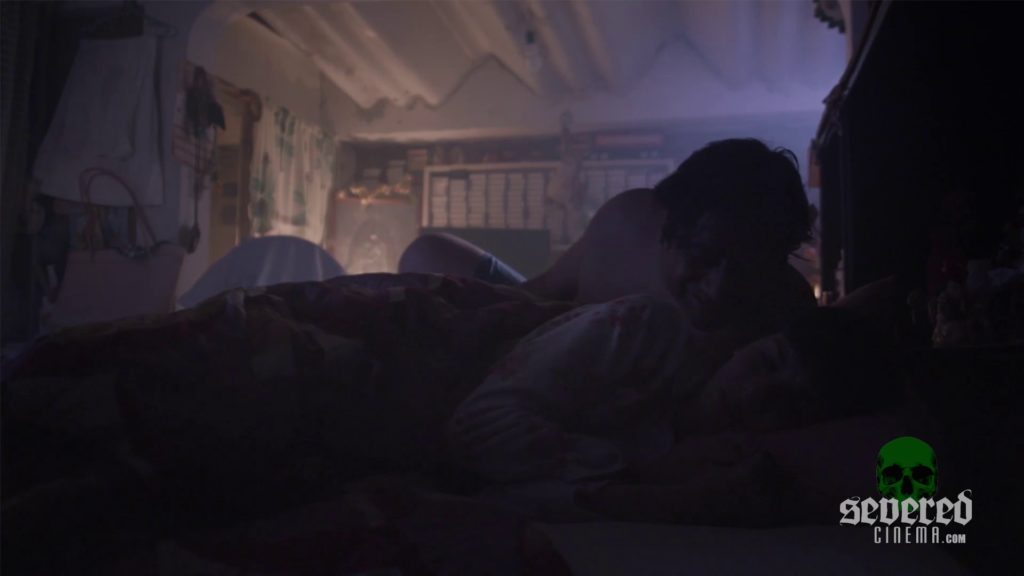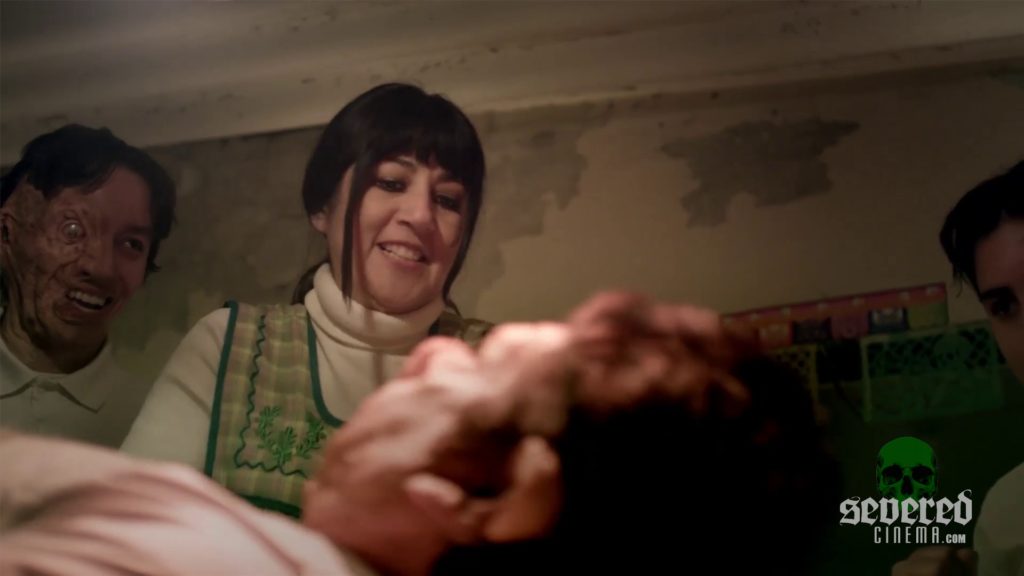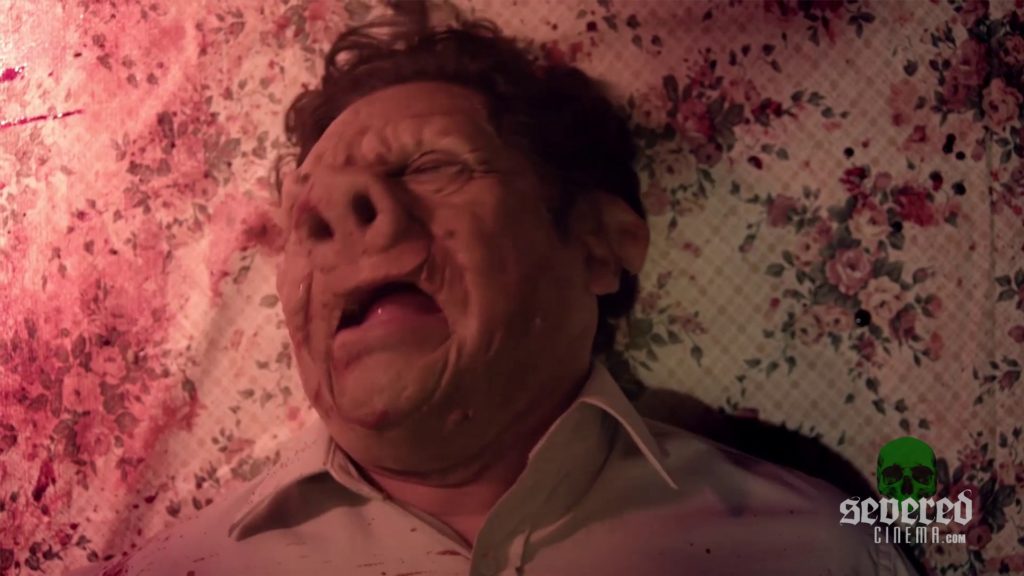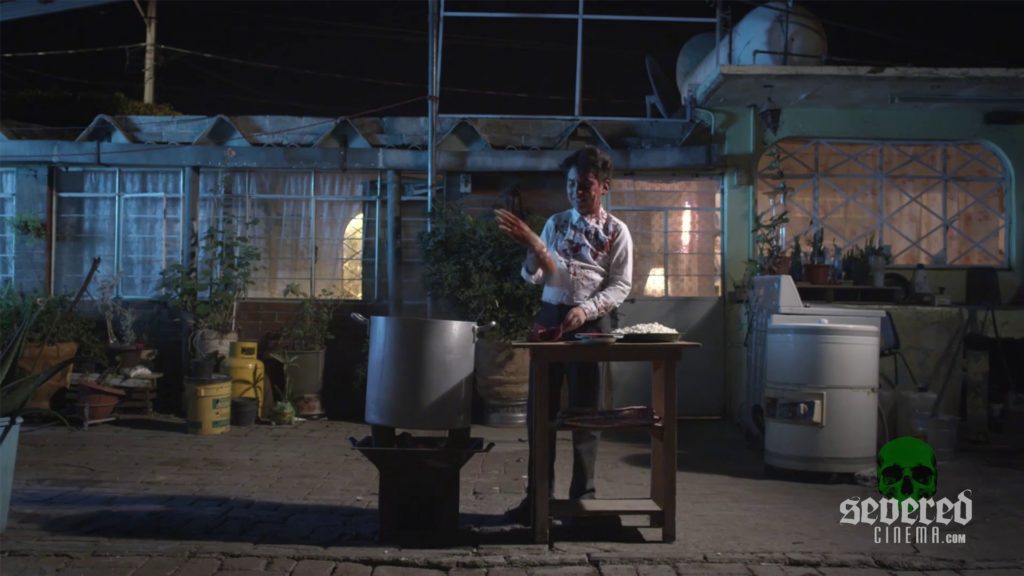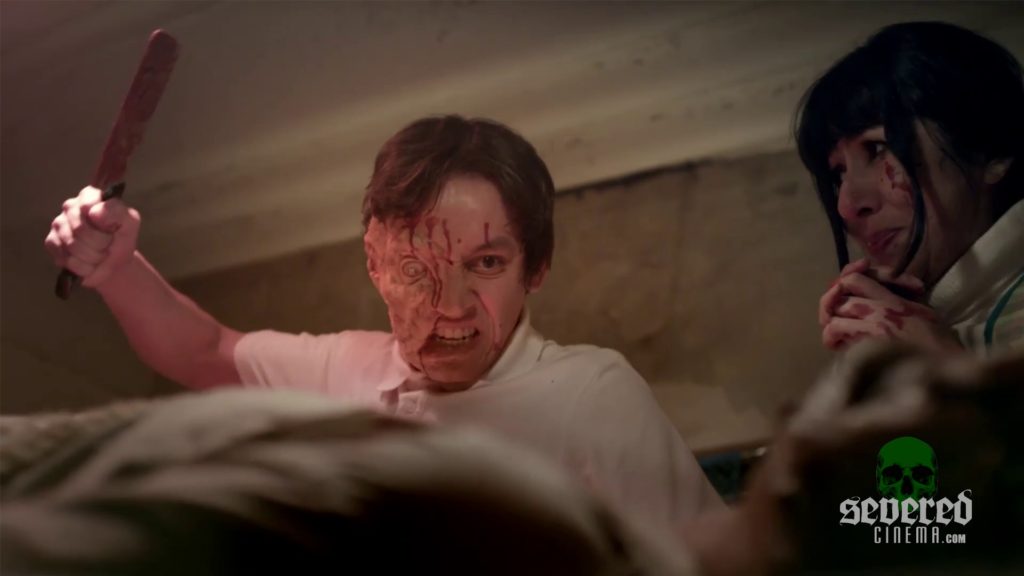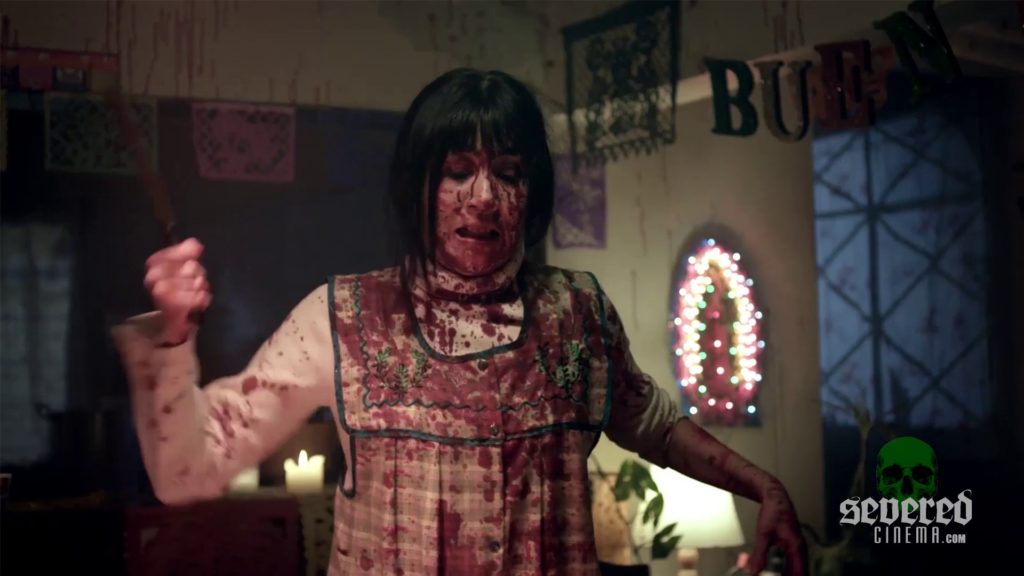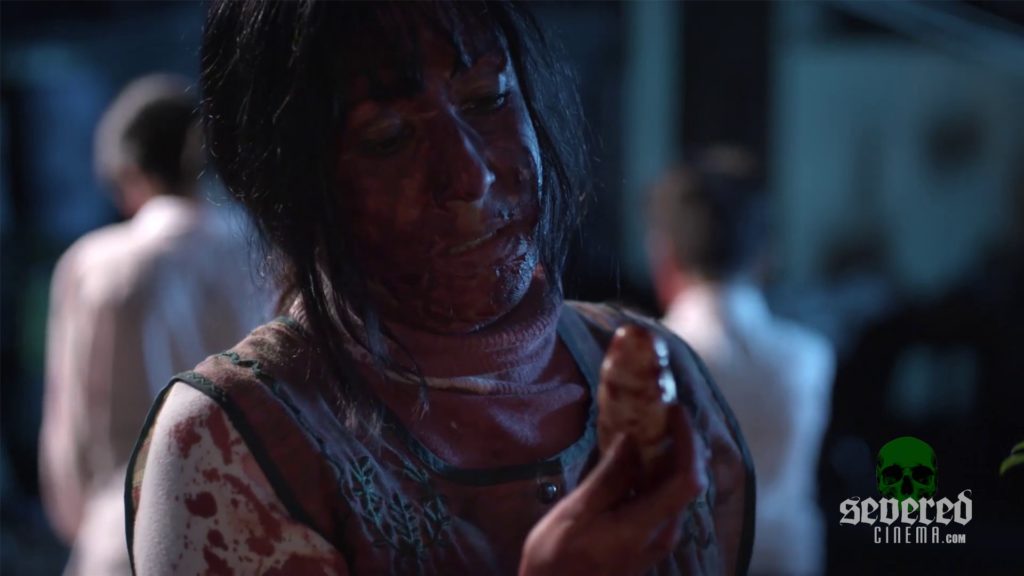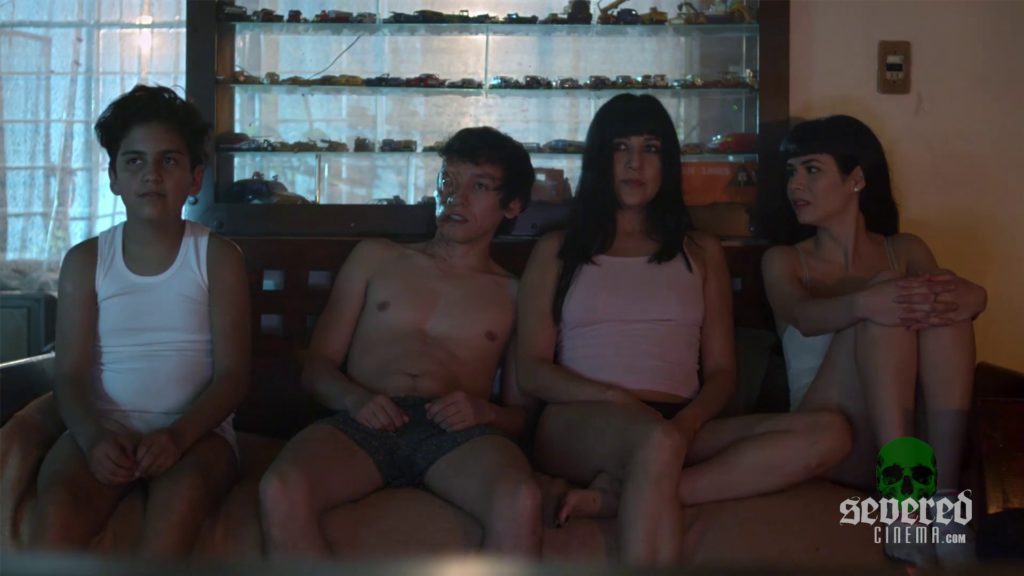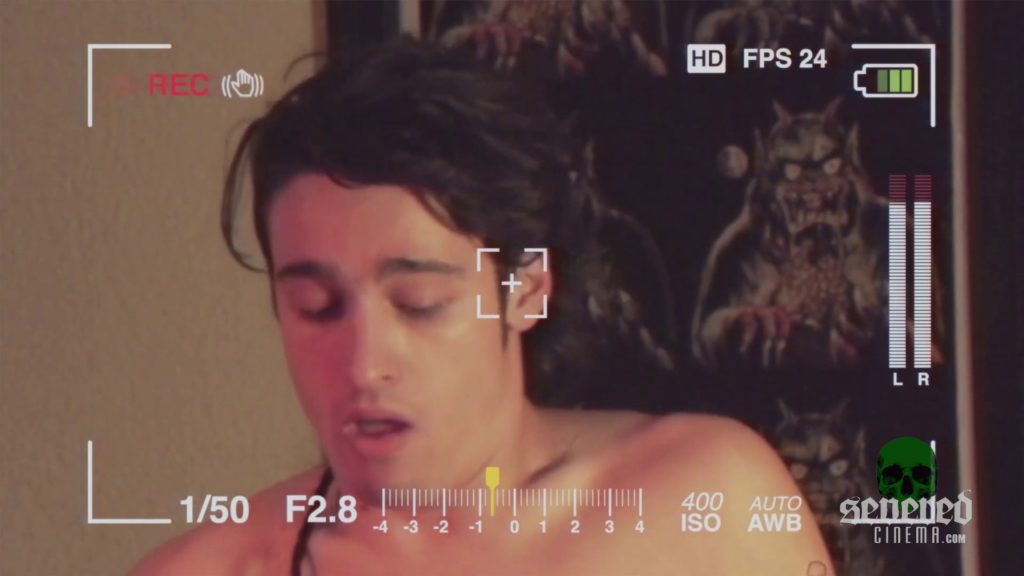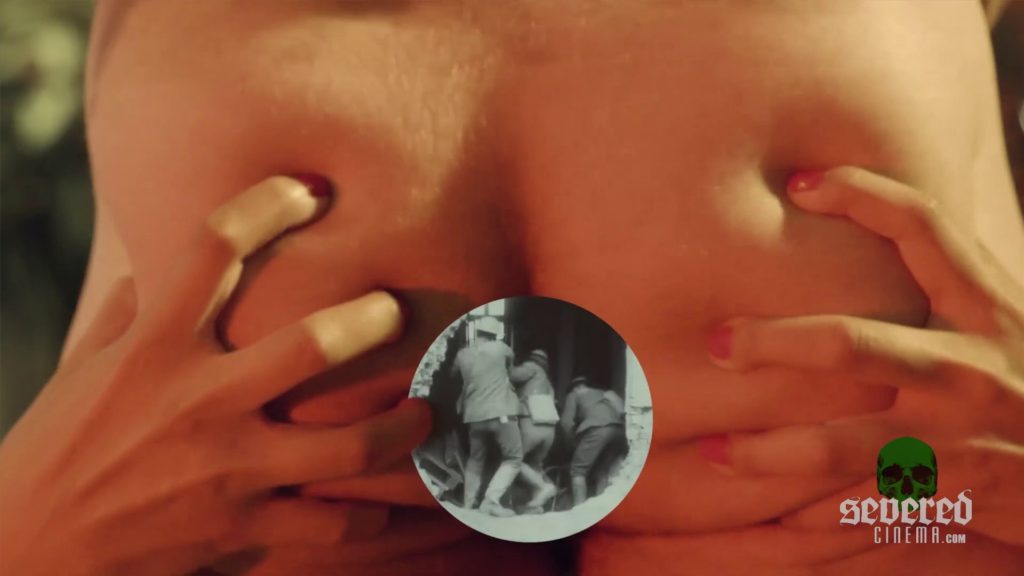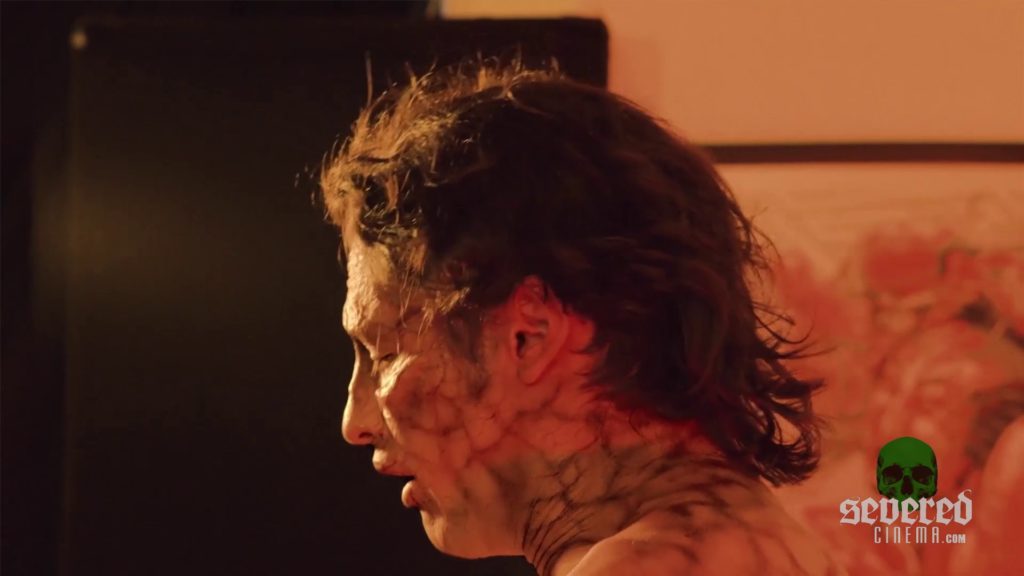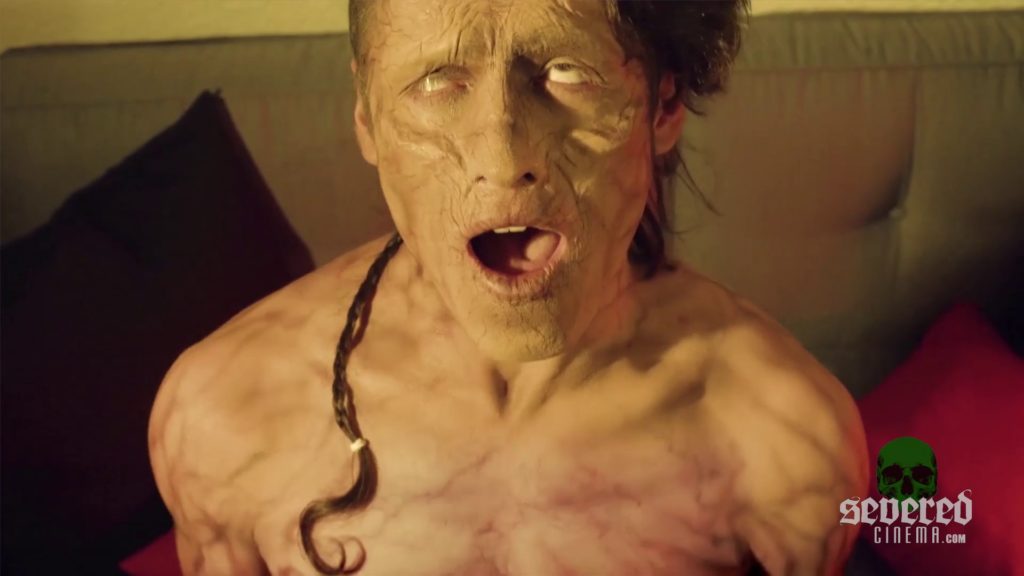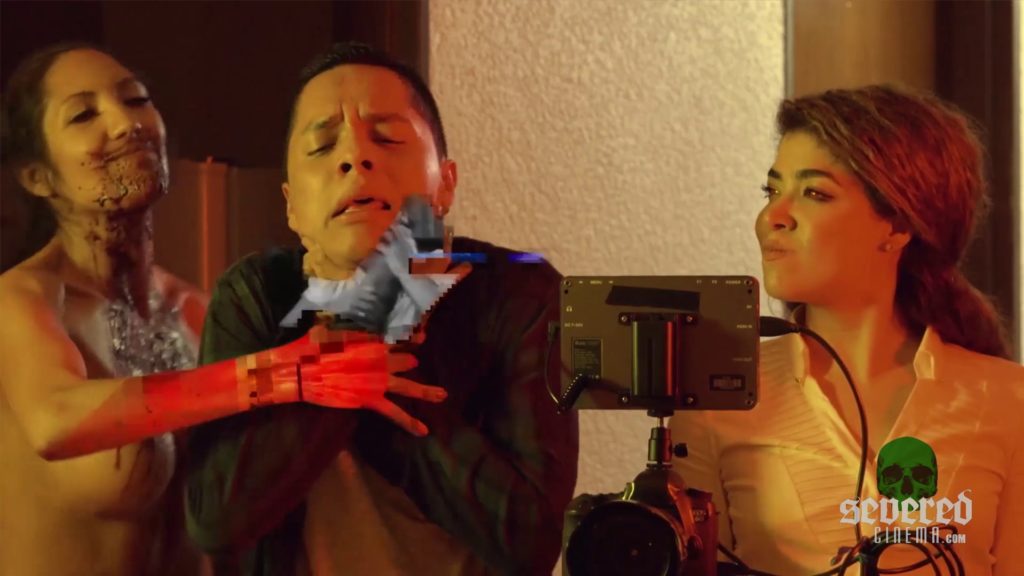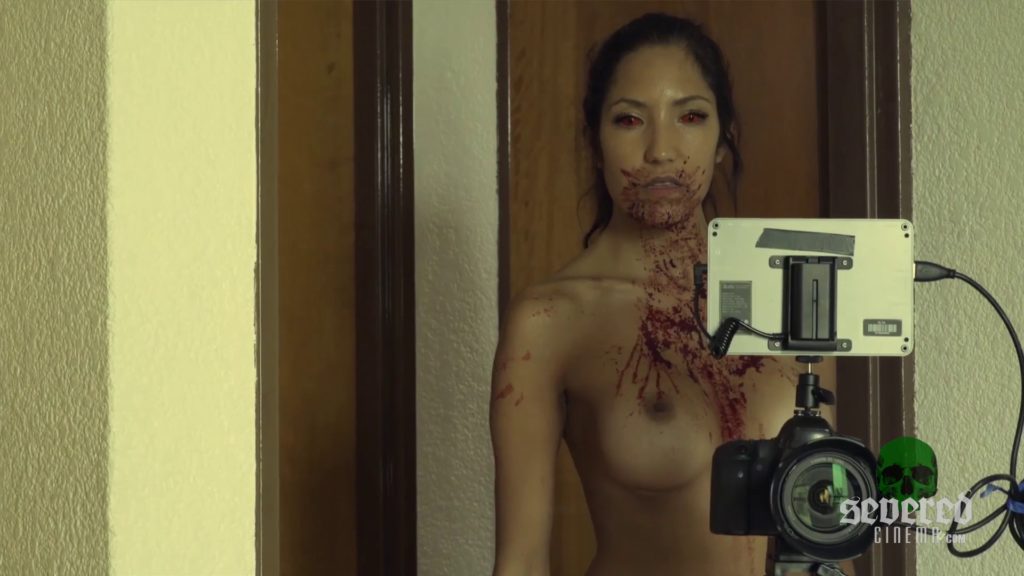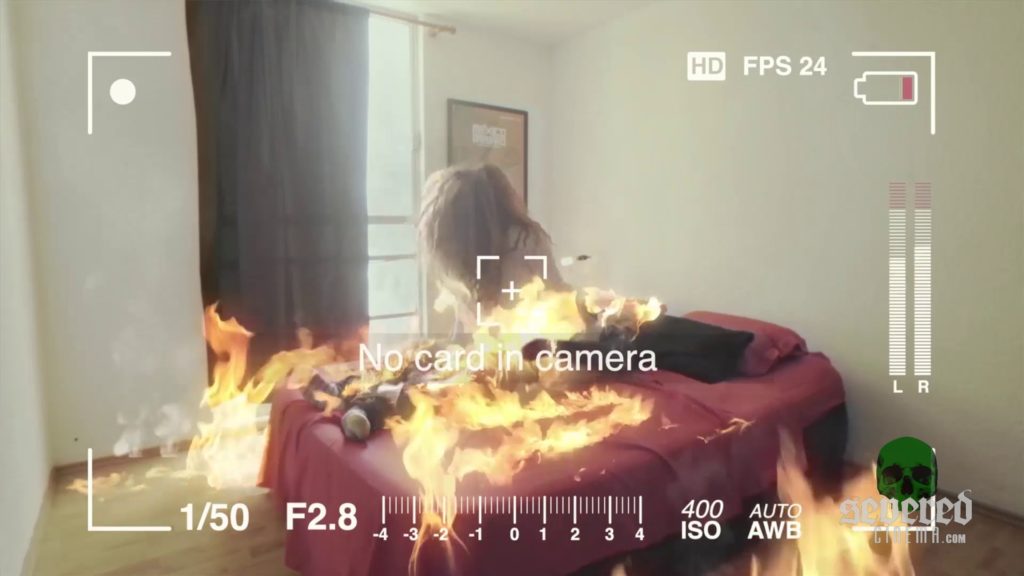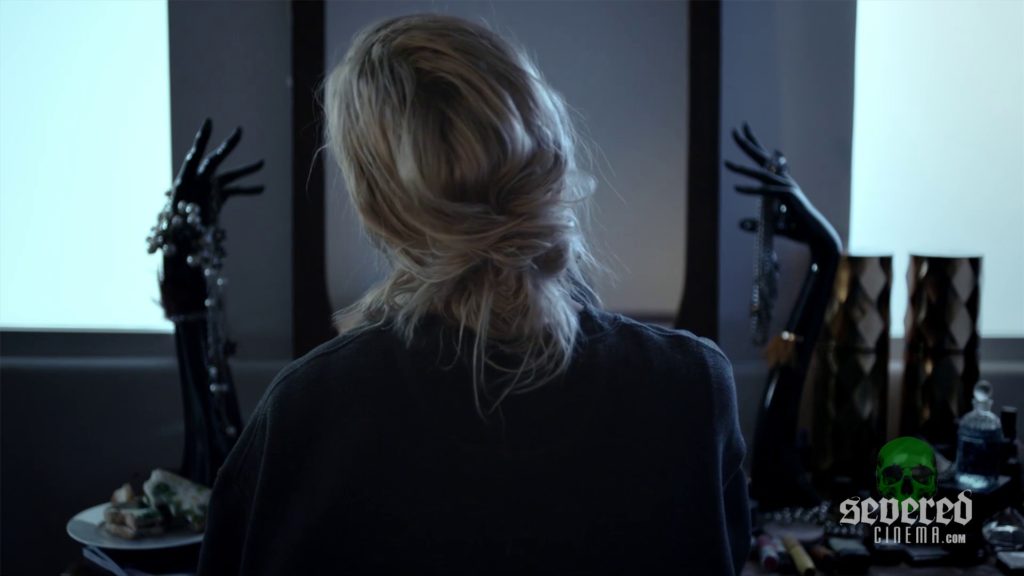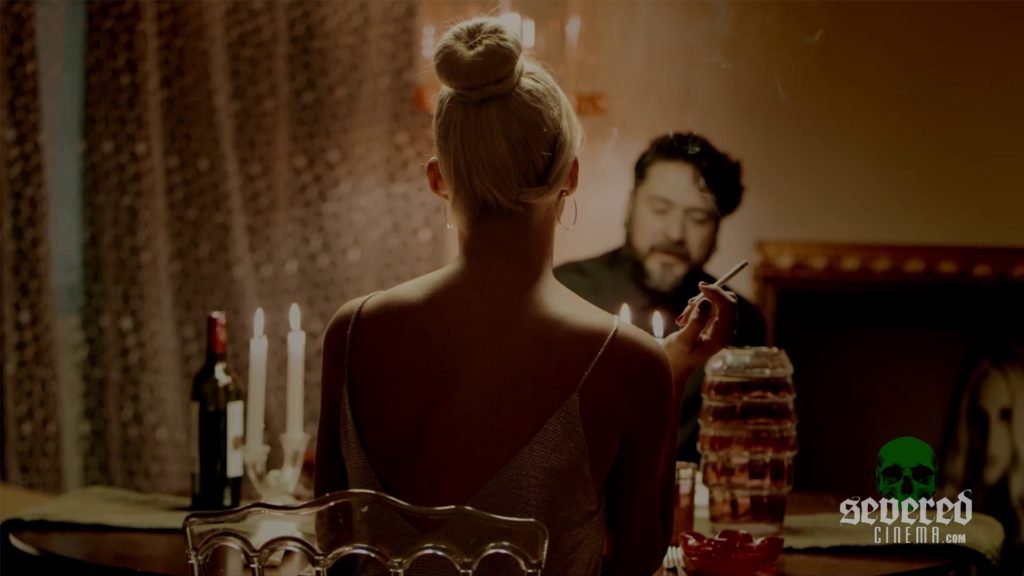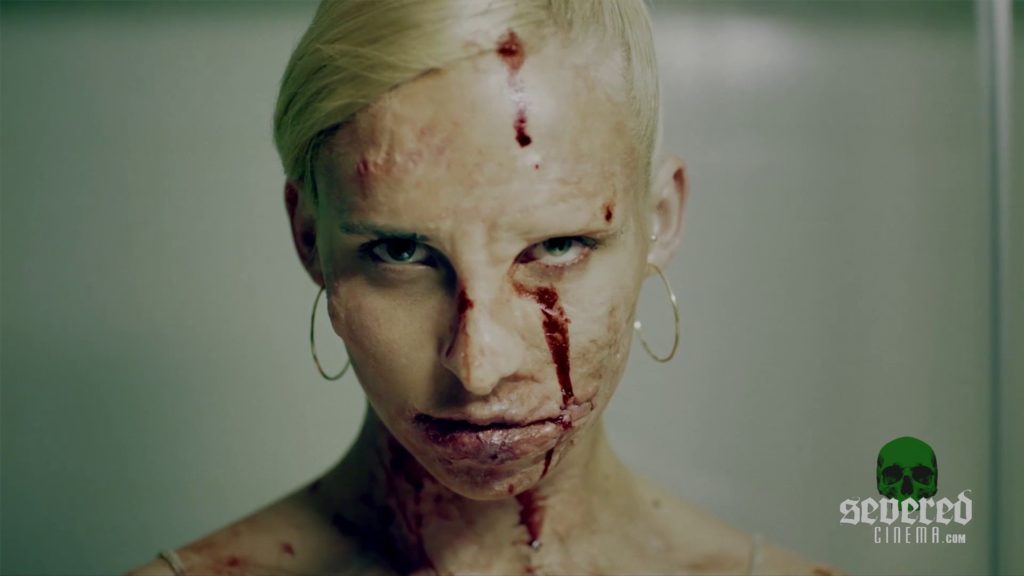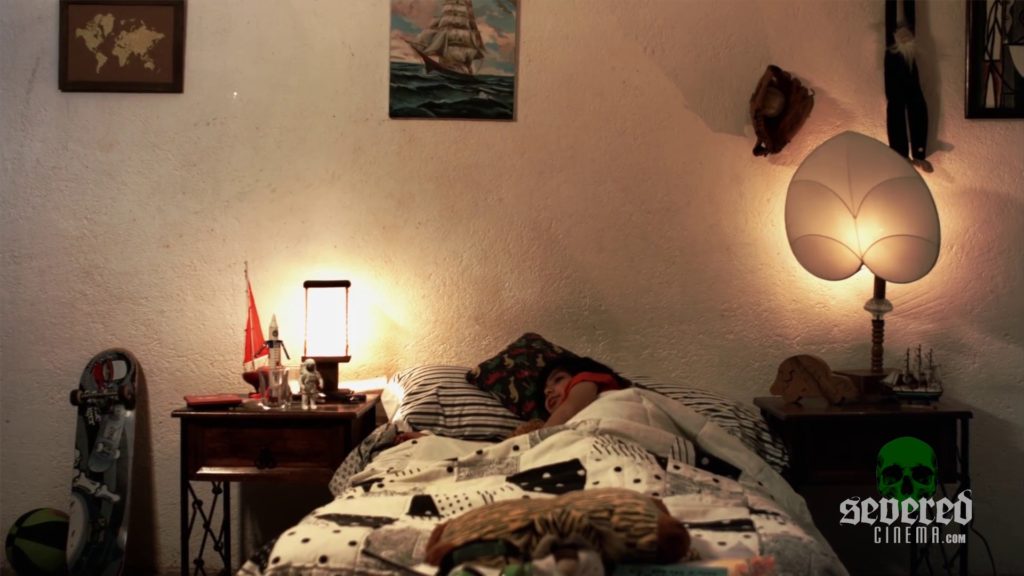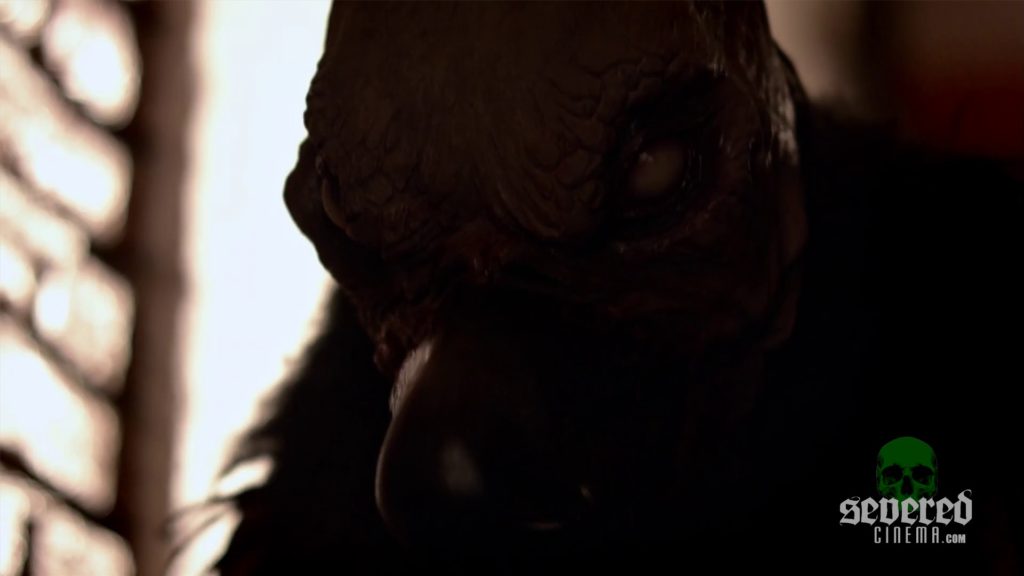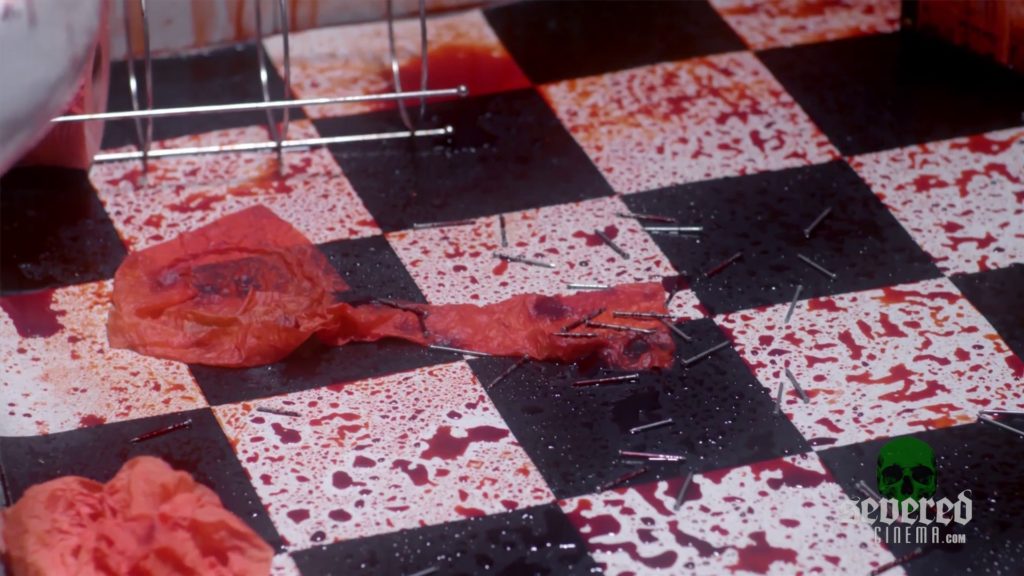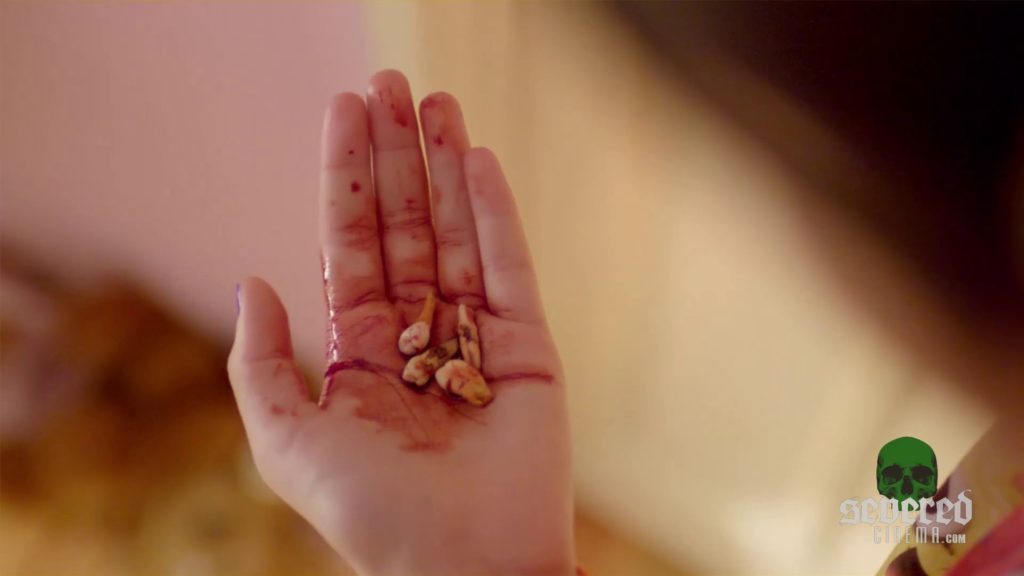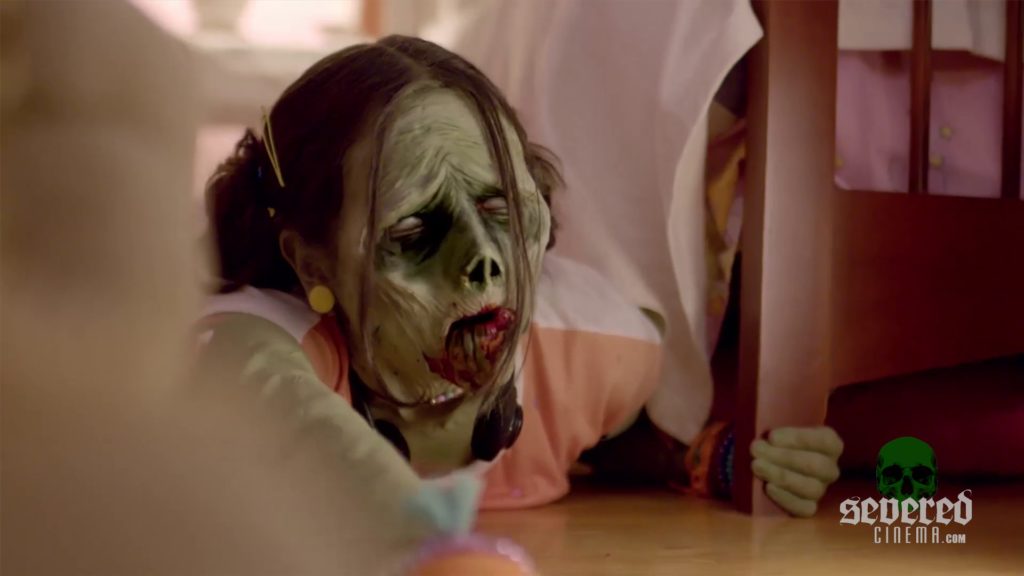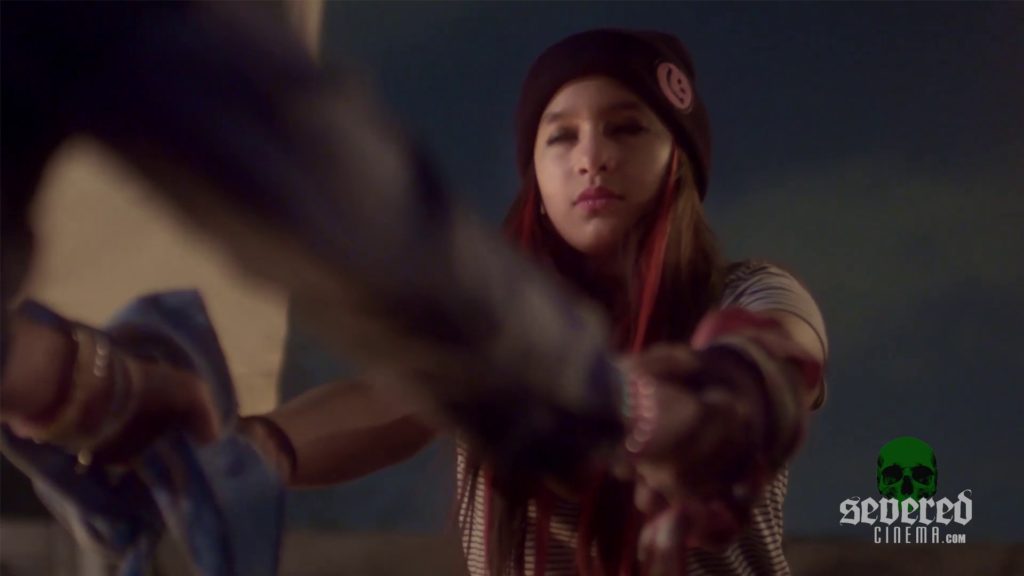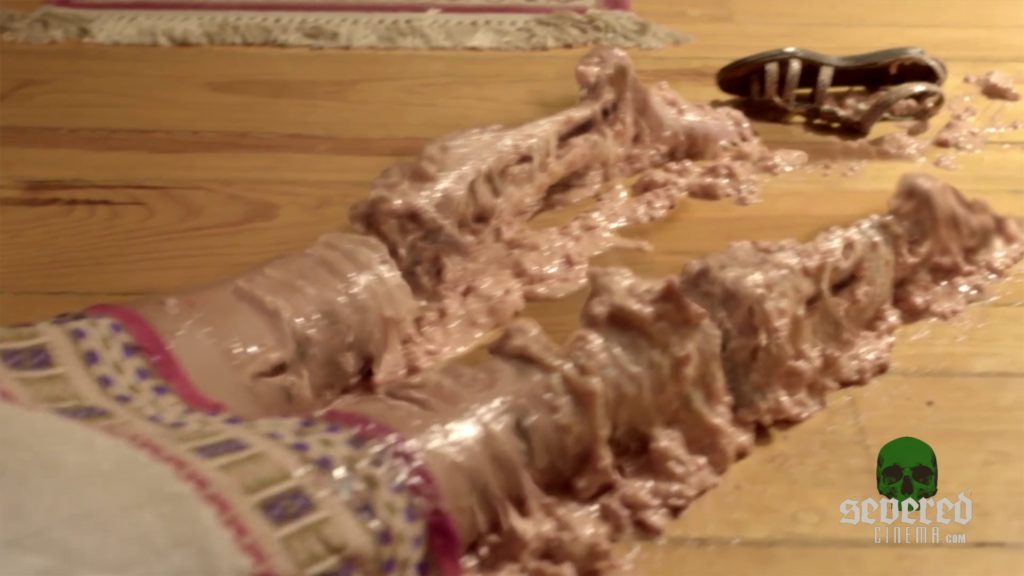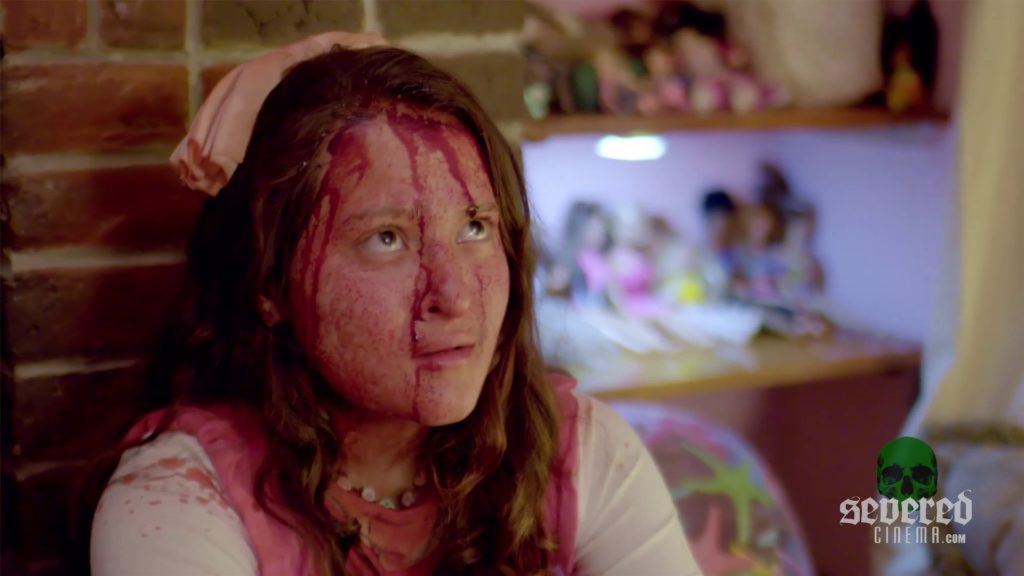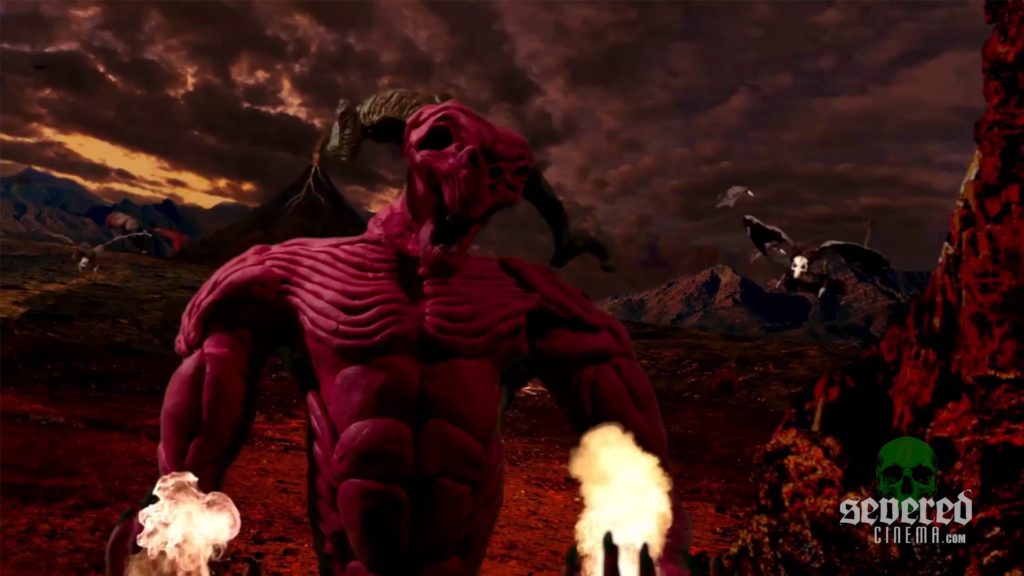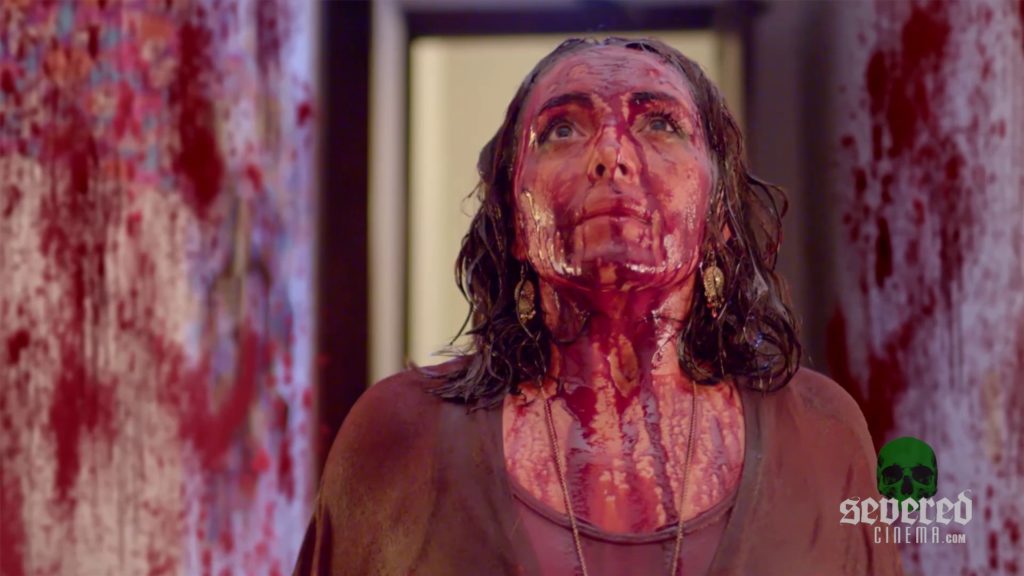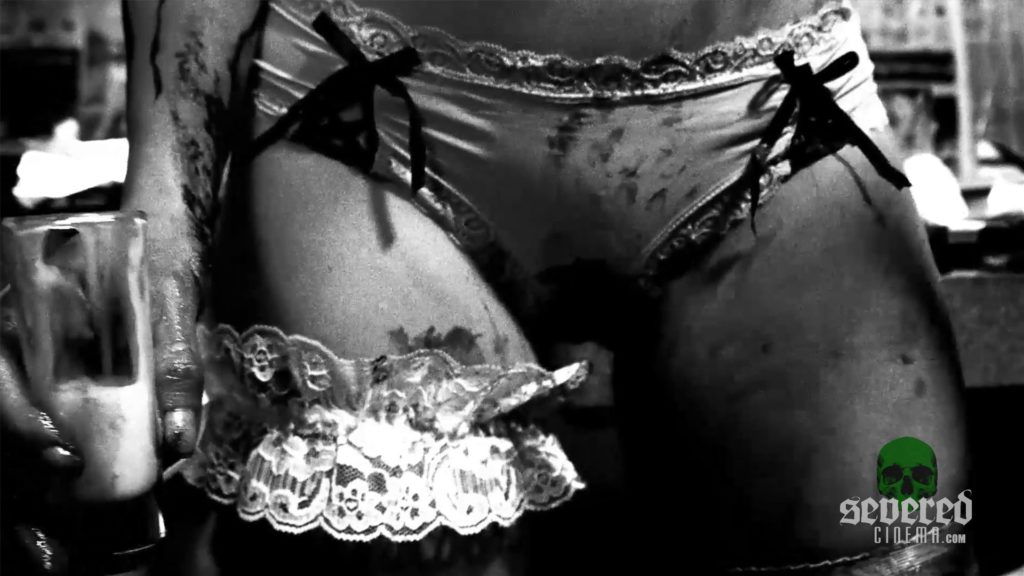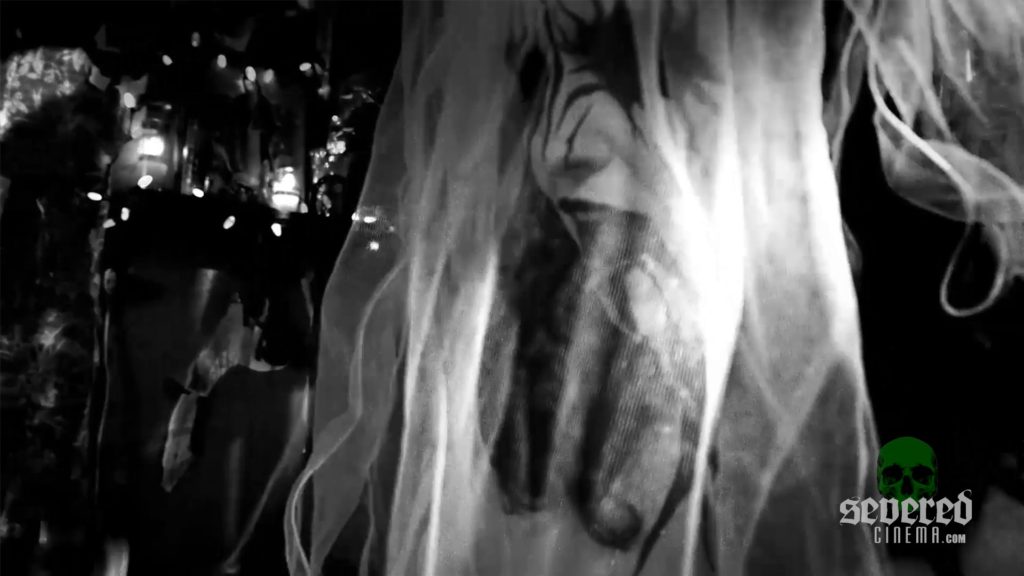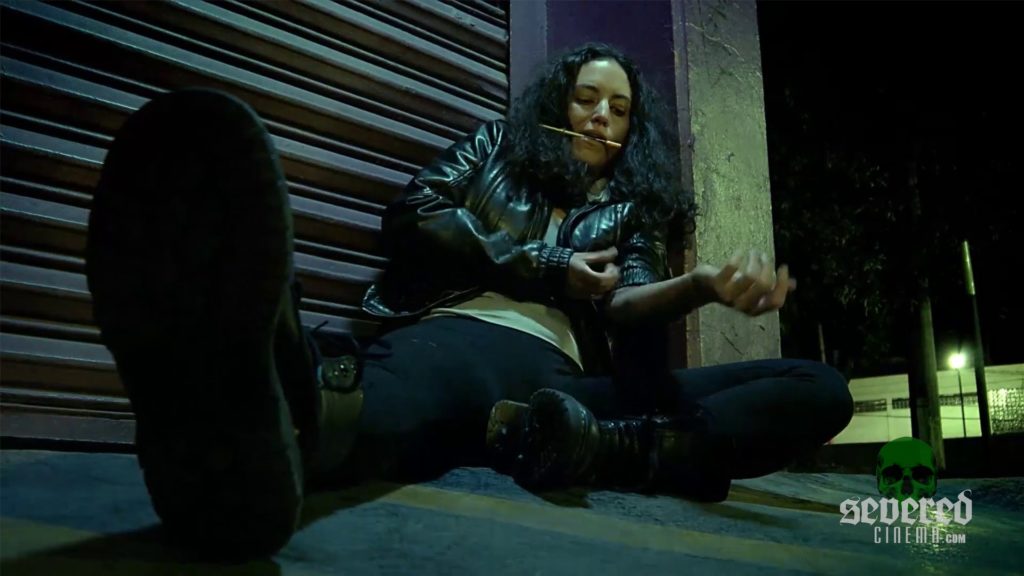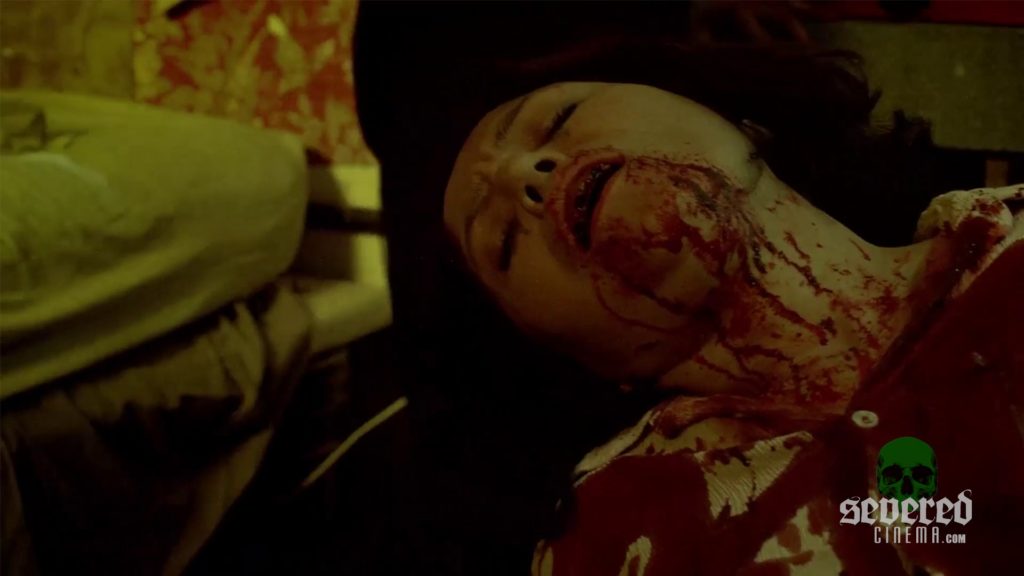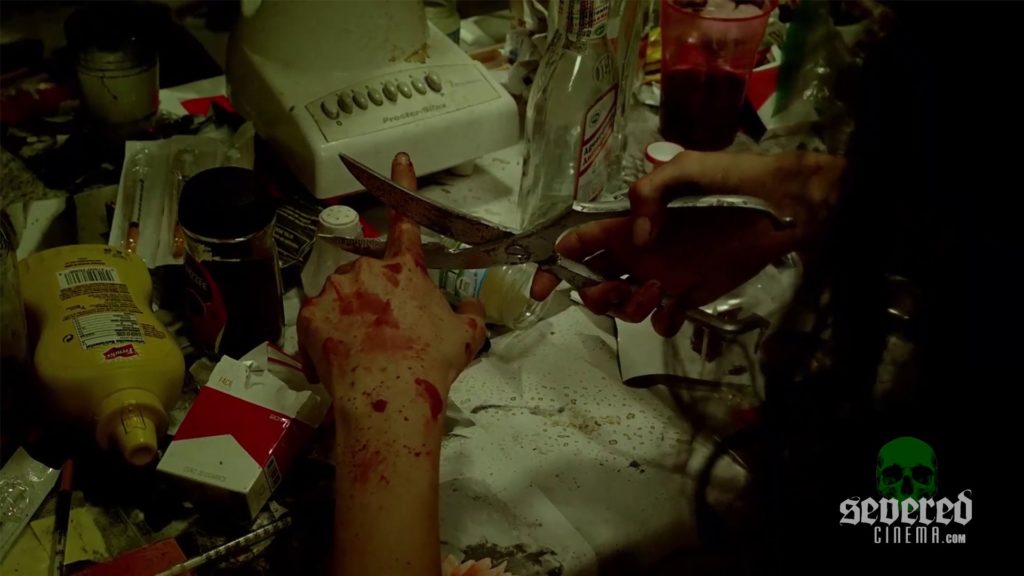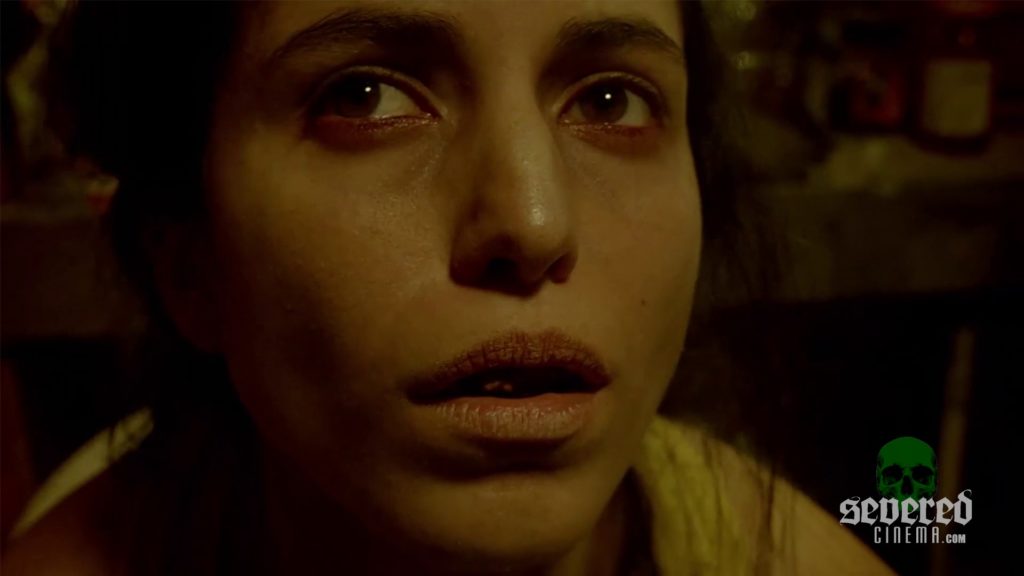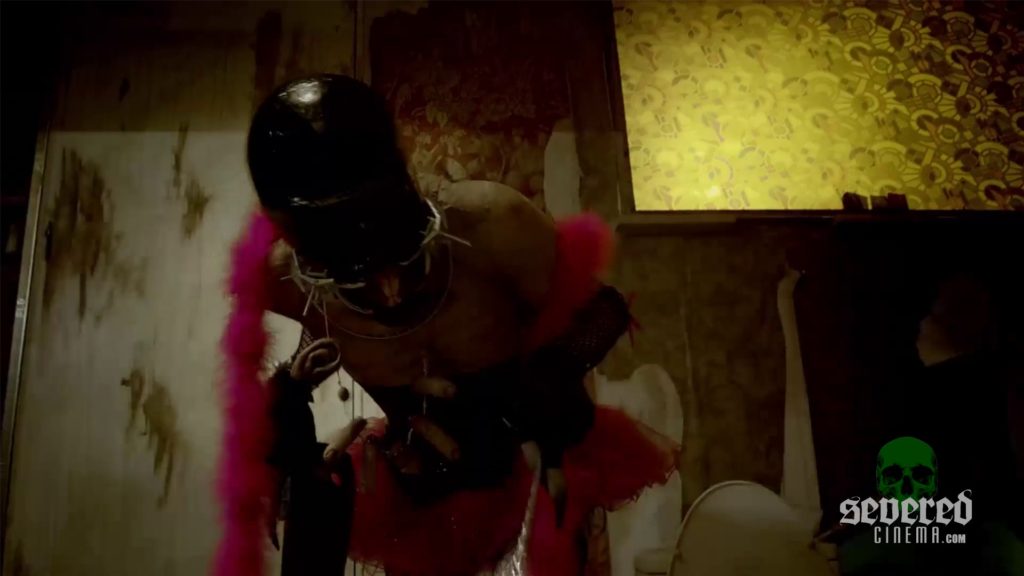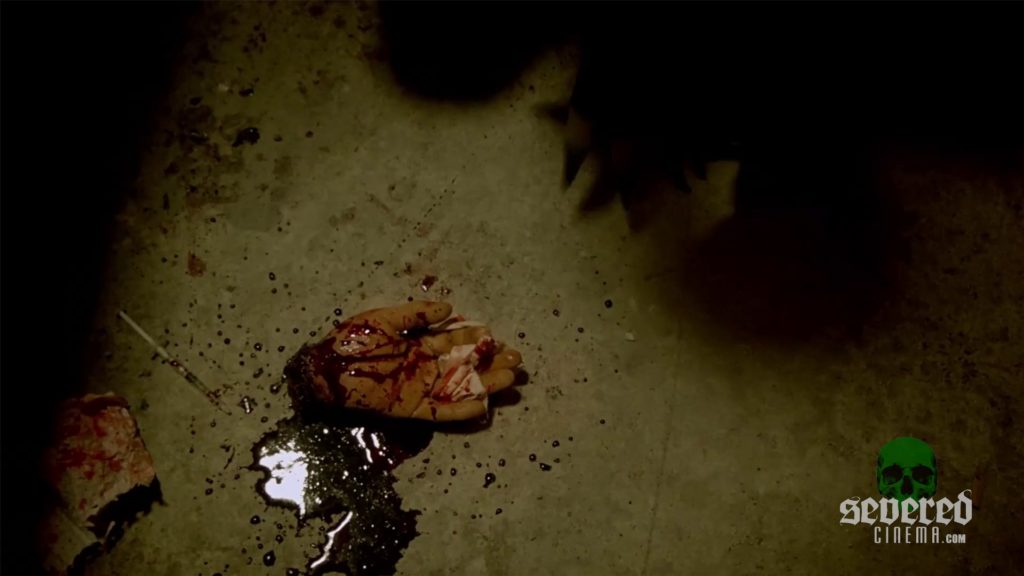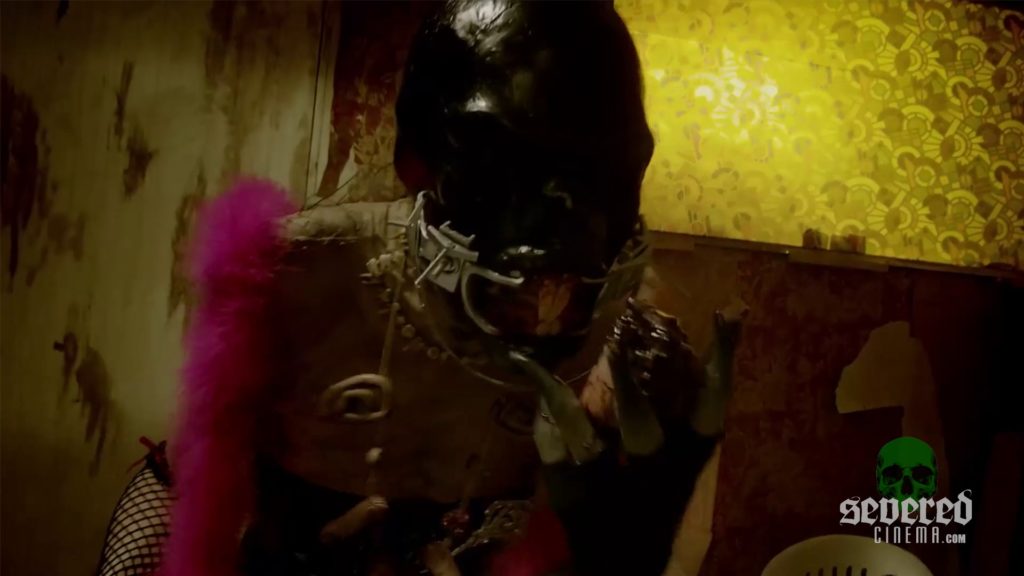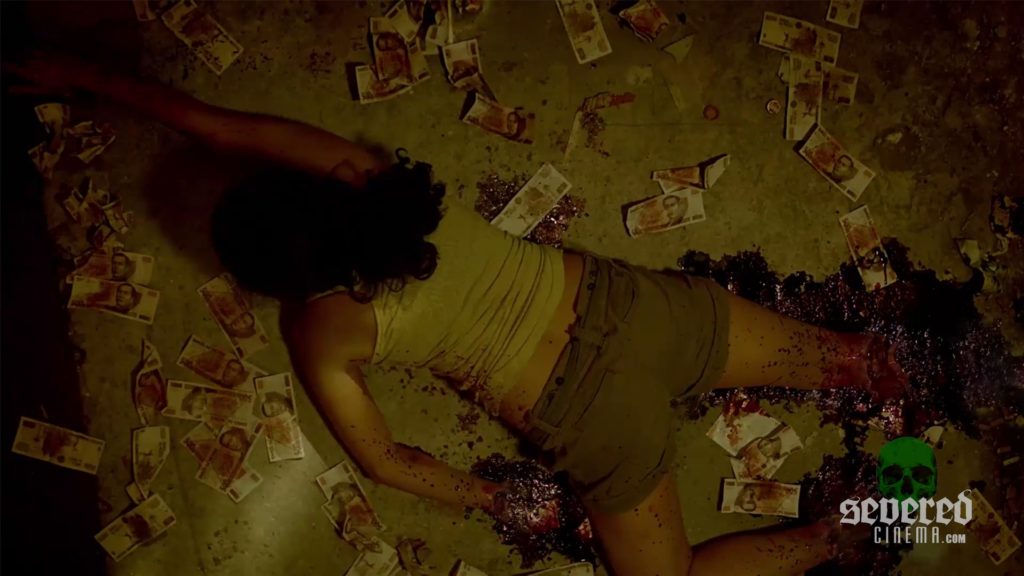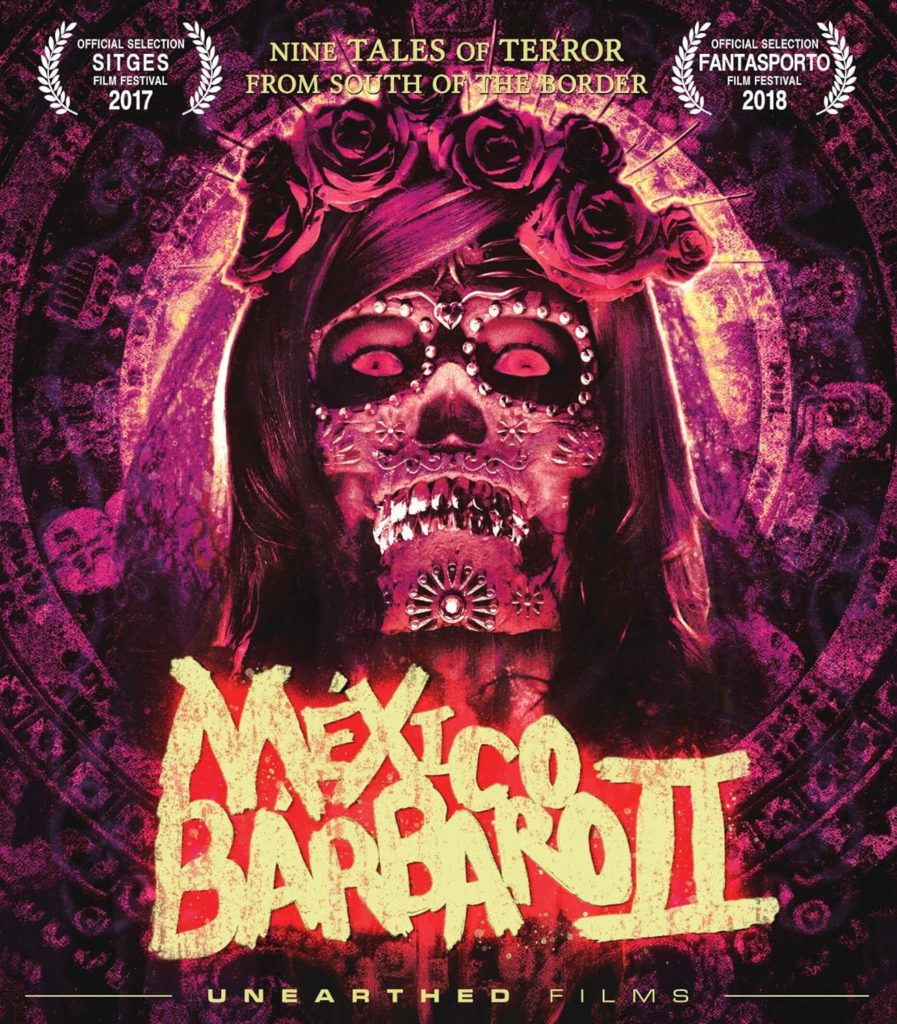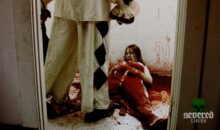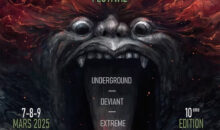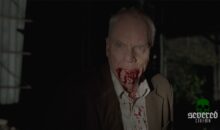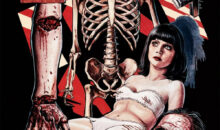México Bárbaro II Blu-ray Review: Exploring Nine of the Most Brutal, Ruthless, and Bizarre Mexican Traditions and Legends from Unearthed Films!
To sustain your hunger for Unearthed Films’ upcoming release of the extreme horror anthology filmThe Profane Exhibit (see review of The Profane Exhibit from Unearthed Films here), viewers are presented with México Bárbaro II out now Blu-Ray. México Bárbaro II is an extreme horror anthology that takes viewers on a journey through Mexican folklore and tradition, delivering nine short films from nine Mexican directors showcasing ruthless, gory, and bizarre legends from their country.
We begin with Juan the Soldier (La leyenda de Juan Soldado), directed by Abraham Sánchez. Set in the atmospheric setting of 1938 Tijuana, a tale unfolds, laden with themes of false accusation and supernatural retribution. Accused of heinous crimes, a man, Juan, finds himself bound and blindfolded, pleading for mercy as the weight of a damning accusation hangs heavy upon him. Urged to flee by his captors at gunpoint, he runs with a desperate fervor, his fate sealed by the arbitrary count of his pursuers. Yet, in a twist of fate, his torment transforms into a sinister encounter with a demonic figure. Confronted by a cloven-hoofed entity, the man strikes a chilling bargain, invoking the specter of revenge against those who wronged him. The killer special effects portraying the demonic entity are exquisite.
As the chilling events unravel, the scene shifts back to the unforgiving desert landscape where the orchestrators of the man’s demise remain unaware of the grave mistake they have made. With the revelation of the true culprit, a captain from the 27th garrison, the irony of their misjudgment becomes starkly apparent. Despite their misguided convictions, the seeds of vengeance have been sown, and the specter of Juan’s return looms ominously over those who sought to condemn him. In this tale of injustice and supernatural retribution, the boundaries between guilt and innocence blur, leaving an indelible mark on the desolate sands of Tijuana’s desert.Diego Cohen’s Paid Phobos (Paidós Phobos) begins in the dimly lit ambiance of a bar, a chance encounter veers into a nightmare as a woman’s trust is shattered by a harrowing act. What begins as a fleeting connection with a stranger spirals into an ordeal as she finds herself subjected to a sexual assault within the confines of a car. The echoes of her trauma resonate long after the encounter, casting a shadow over her life and leaving her grappling with the aftermath of unspeakable violation.
Amidst the turmoil, she faces the daunting prospect of navigating motherhood without love, haunted by the specter of a child conceived in the burden of her anguish. As she confronts the weight of an impossible decision, her journey becomes engulfed with unfathomable darkness.In Potzonalli, director Fernando Urdapilleta crafts a disturbing yet compelling story exploring the depths of familial turmoil and revenge. The story follows a family plagued by the abusive actions of their pig-nosed patriarch, who inflicts horrifying acts upon his sons, including permanently disfiguring one with scalding skillet oil. As the family’s suffering reaches its breaking point, they unite in a grisly act of retaliation, gruesomely dismembering the abusive figure and cooking him in a Mexican stew!
Urdapilleta’s film explores the dark themes of abuse and retribution with a blend of horror and starkly dark humour. There is a scene where the mother cradles her husband’s freshly severed member, which brings a twisted sense of familial unity, adding a wildly dark layer to Potzonalli.
Fireballs (Bolas De Fuego) directed by duo Christian Cuevas and Ricardo Farias delves into the occult as two succubi partake in a pornographic scene where they extract the life force on men through fellatio, a chilling homage to Satan. The juxtaposition of explicit imagery with occult symbolism initially bewilders viewers, accentuated by flashes of pornographic advertisements hinting at sinister undertones. Despite an uneasy start, the short’s unconventional visual effects and originality gradually draw audiences into its mesmerizing narrative.
Throughout Fireballs, non-traditional visual elements underscore its unique approach, highlighting the filmmakers’ commitment to exploring uncharted territories of horror. The short’s ability to meld pornographic and occult themes into a perverse storyline ultimately leaves a lasting impression, showcasing its audacious creativity.
Vitriol, directed by Michelle Garza, delves into the aftermath of sexual assault as a woman grapples with the horrifying realization of being violated by her photographer friend at a party. Disoriented and traumatized, she discovers evidence of the assault, prompting a chilling plan for revenge involving sulfuric acid (vitriol) and a hammer procured from a hardware store.
Navigating the delicate terrain of revenge in the wake of sexual violence, Vitriol crafts a tense narrative that delves into the psychological toll of assault. The film’s unsettling premise adds a layer of depth to the similarly themed previous acts in this anthology, addressing real-world horrors of sexual assault and offers a brutal exploration of the victim’s journey towards retribution… with acid and a hammer!In Sergio Tello’s Do Not Sleep (No Te Duermas), childhood fears manifest as a young boy grapples with the eerie tales spun by his deceased grandmother. Despite his father’s attempts to rationalize away the nighttime terrors as mere stories, the boy’s persistent unease takes a chilling turn when the lurking werebird creature from his nightmares becomes all too real. However, the short falls short in clarity and cohesion, leaving viewers grappling with abrupt scenes and unanswered questions, ultimately making it one of the weaker entries in the anthology.
In It’s About Time (Ya Es Hora), the plot revolves around two junior high-aged girls plotting to curse their classmate, Jess, who epitomizes the archetype of a stuck-up bully. Fatima, fueled by resentment, persuades her reluctant friend to join her in a satanic ritual aimed at banishing Jess from their lives. However, the short’s impact is marred by jarring scenes featuring CGI blood that undermine the overall atmosphere and mystique of the film. Despite the film’s cool body horror practical makeup effects, the overreliance on terribly executed CGI detracts from the viewing experience, leaving this viewer questioning the creative choices made by director Carlos Meléndez. Despite its shortcomings, it still offers a unique exploration of revenge and the complexities of adolescent relationships.
Exodoncia, directed by Lex Ortega, stands out as a pivotal inclusion in México Bárbaro II, marking Ortega’s return since his acclaimed work on Atroz previously released by Unearthed Films. The short unfolds with an intense and bizarre sequence featuring drug use, sexual imagery intertwined with religious iconography, and scenes of violence. As the narrative progresses, the story takes increasingly surreal turns, with the protagonist’s descent into addiction and obsession manifesting in encounters with demonic entities making clicking sounds ala The Last of Us. However, despite its visually striking presentation and moments of effective gore, the film’s narrative coherence suffers, leaving audiences bewildered and questioning the underlying message Ortega intended to convey.Throughout the anthology, Exodoncia shares thematic elements with other shorts, exploring themes of religion and anti-religious sentiments. Despite its highly anticipated release, this short ultimately disappoints, failing to deliver a cohesive story that aligns with its visually impressive presentation. While certain scenes offer glimpses of visceral horror, the overall impact of Exodoncia is overshadowed by its confusing and disjointed plot, leaving viewers searching for deeper meaning amidst the chaos portrayed on screen.
México Bárbaro II unfolds, for the most part, as a gripping anthology of horror shorts, each uniquely crafted with a Mexican flavor. Juan the Soldier weaves a tale of revenge, blending historical elements with demonic horror, enriched by outstanding monster effects. Paid Phobos delves into the consequences of a traumatic event, delivering a chilling narrative with a powerful twist. Potzonalli takes a bizarre turn as a family seeks gruesome revenge, embracing dark humor amidst the horror. Fireballs explores the occult through succubi in a visually striking and visually challenging narrative that eventually captivates. Vitriol delves into revenge after sexual assault, using sulfuric acid and a hammer as a tool of retribution that would make Peter Mountain proud. Do Not Sleep explores childhood fears, though its abruptness leaves it less polished than the others. It’s About Time ventures into teenage angst and supernatural curses, marred by inconsistent CGI blood but is somewhat redeemed by its practical effects. The highly anticipated Exodoncia ultimately disappoints, offering visually stunning but narratively confusing scenes. Throughout the anthology it is bound by religious and anti-religious motifs, creating a cohesive yet diverse exploration of Mexican horror cinema.
Unearthed Films presents México Bárbaro II on Blu-ray with an aspect ratio of 1.78:1 1080p HD with an MPEG-4 AVC codec and looks stunning. The audio is presented in Spanish DTS-HD Master Audio 5.1 & 2.0 PCM with English subtitles.
For the extras there is a behind-the-scenes featurette for Juan the Soldier (9:12). Next up is ‘Roberto Kulo’s (piece of shit) Behind the Balls: Balls of Fire’ which is another behind the scenes extra for the short Fireballs (7:59). ‘Vitriol BTS & Gallery’ is basically dancing by the lead actress for half a minute followed by behind-the-scenes photos (8:00). Then we have a quick featurette on Do Not Sleep (3:22). Next up is a short behind-the-scenes collection of clips from Exodonicia (2:31). Rounding out the extras for this release is a stills gallery and theatrical trailer for the film.
México Bárbaro II
AKA: Mexico Barbaro 2
Directed by: Diego Cohen, Christian Cueva, Ricardo Farias, Michelle Garza Cervera, Carlos Meléndez, Lex Ortega, Abraham Sánchez, Sergio Tello, Fernando Urdapilleta
Written by: Diego Cohen, Christian Cueva, Ricardo Farias, Adrian Garcia Bogliano, Michelle Garza Cervera, Carlos Meléndez, Alfredo Mendoza, Lex Ortega, Abraham Sánchez, Sergio Tello, Fernando Urdapilleta
Produced by: Marla Arreola, Christian Cueva, Ricardo Farias, Carlos Meléndez, Sergio Tello, Antonio Urdapilleta, Fernando Urdapilleta, Lex Ortega
Cinematography by: Diego Cohen, Luis García, Aura González, Alejandro Montalvo, Rocco Rodriguez
Editing by: Diego Cohen, Gilberto González Penilla, Elena Morales, Freddy Noriega, Lex Ortega, Alfredo Gonzalez Unibe
Music by: Diego Cohen, Tonalli Magaña
Special Effects by: Arturo Cardenas, Kevin Flores Robledo, Juan Francisco Mendez, Alfredo Olguín, Gala Phenia
Cast: Uri Meza, Alejandra Anaya, Gabo Anguiano, Francisco Barreiro, Gloria Berdeja, Humberto Busto, Laura de Ita, Emilio Guerrero, Pedro Joaquín, Aline Marrero
Year: 2017
Country: Mexico
Language: Spanish (English Subtitles)
Colour: Colour
Runtime: 1h 37min
Studio: LSD Audio, Giant Films, Grotesque, Mr. Blue, Monkey Business Productions, Nobody, La Palma De Oro Films, Rabya Productions
Distributor: Unearthed Films
Blu-Ray Specs:
Aspect Ratio: 1.78:1 1080p MPEG-4 AVC
Region: A
Audio: Spanish: DTS-HD Master Audio 5.1 & 2.0 PCM with English Subtitles
Supplemental Material:
– La Leyenda De Juan Solado Featurette
– Bolas De Fuego Featurette
– Vitriol BTS & Gallery
– No Te Duermas Featurette
– Exodoncia Featurette
– Stills Gallery
– Theatrical Trailer
